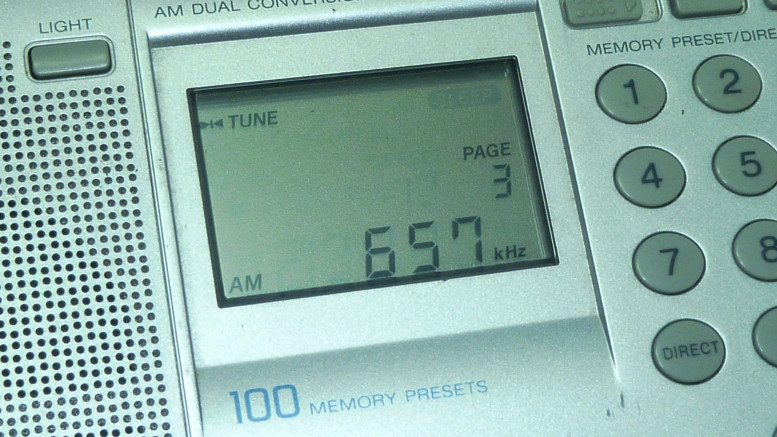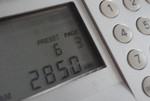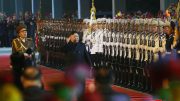The Korean Central Broadcasting Station (KCBS), North Korea’s main national radio station, has been testing digital radio again.
In early December, broadcasts from the station using the DRM (Digital Radio Mondiale) format were received on shortwave. Compared to analog AM broadcasts, DRM signals are better quality but like all digital broadcasts there is little tolerance for interference. The signal is either good enough to receive or bad enough that you get nothing.
The North Korean transmission on 3205kHz contained a label identifying it as test from the state broadcaster: “조선중앙방송국. DRM시험방송중입니다.” The broadcasts were first noted by radio monitors including Wolfgang Bueschel and a blog devoted to DRM.
Here’s what the KCBS analog broadcast sounded like on 3250kHz shortwave on December 5 from a receiver in Shenyang, China:
And here’s the DRM broadcast on 3205kHz, also received on December 5 from Shenyang, China. There are several drop-outs in the reception.
The difference between the two should be clear. The AM signal exhibits constant, low-level interference while the DRM signal is clear.
The clarity of the digital signal is more easily heard on a clip with speech. Again there are several losses of the program due to interference.
The DRM technical format in use was single channel DRM Mode B broadcast with a data rate of 20.96kbps.
The test broadcasts are probably partly to evaluate the quality of reception within North Korea. It should be noted that despite the problems on the recorded reception above, domestic reception might be better and suffer from fewer interference problems because signals will be stronger.
But it’s unclear what the final goal of the test transmissions will be. DRM has been around for many years but uptake around the world has been slow due to the cost of receivers. Radios often cost several hundred dollars, which puts them beyond the reach of most North Korean households.
KCBS was first spotted conducting DRM tests in 2012. At the time, it appeared the radio station was using DRM equipment from the Radio and Television Engineering Research Center (ECDAV) at the Communication University of China. The tests have periodically returned but there appears no regular programming.





